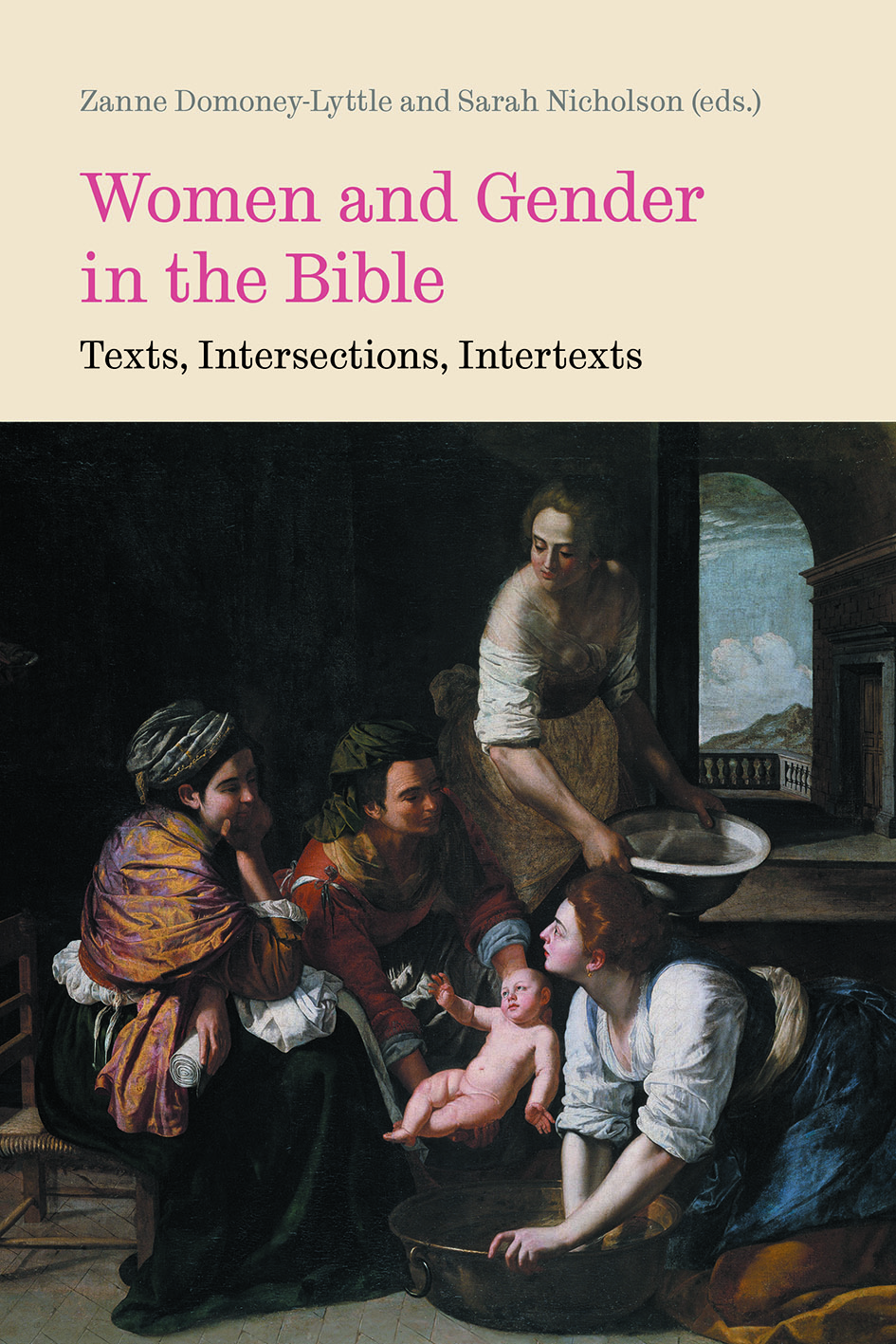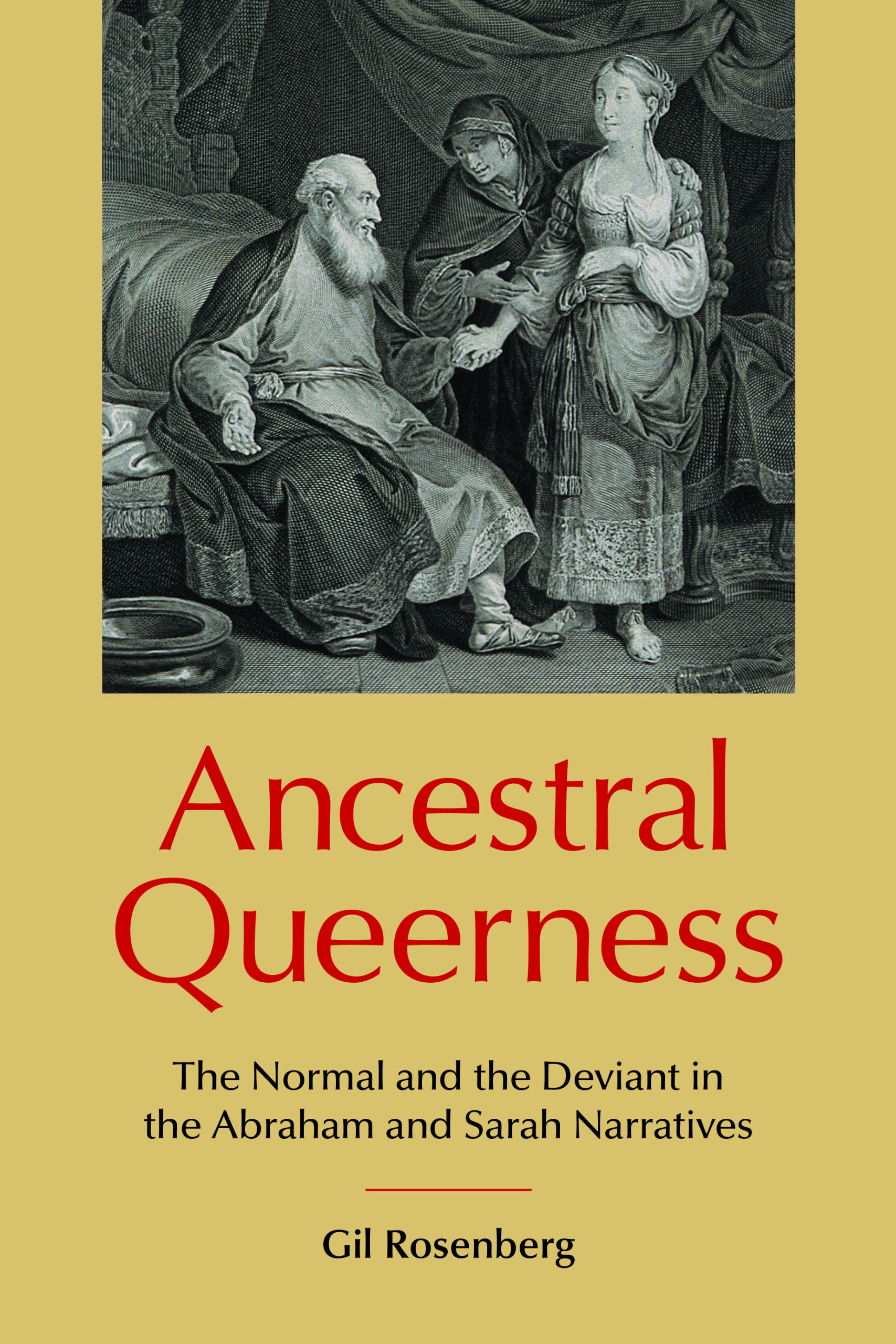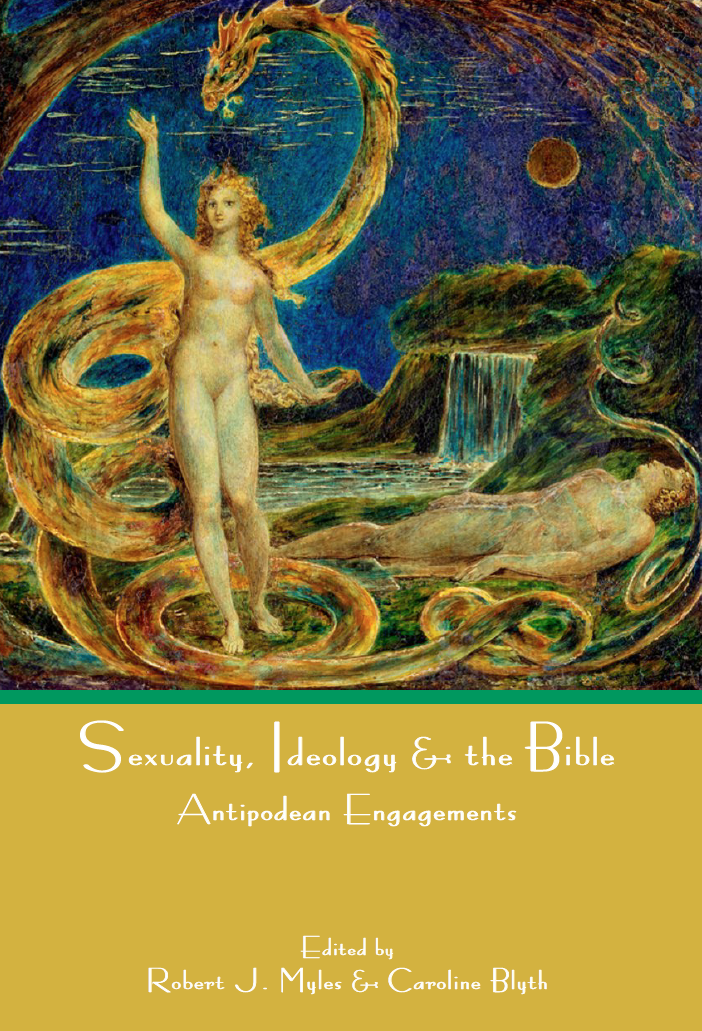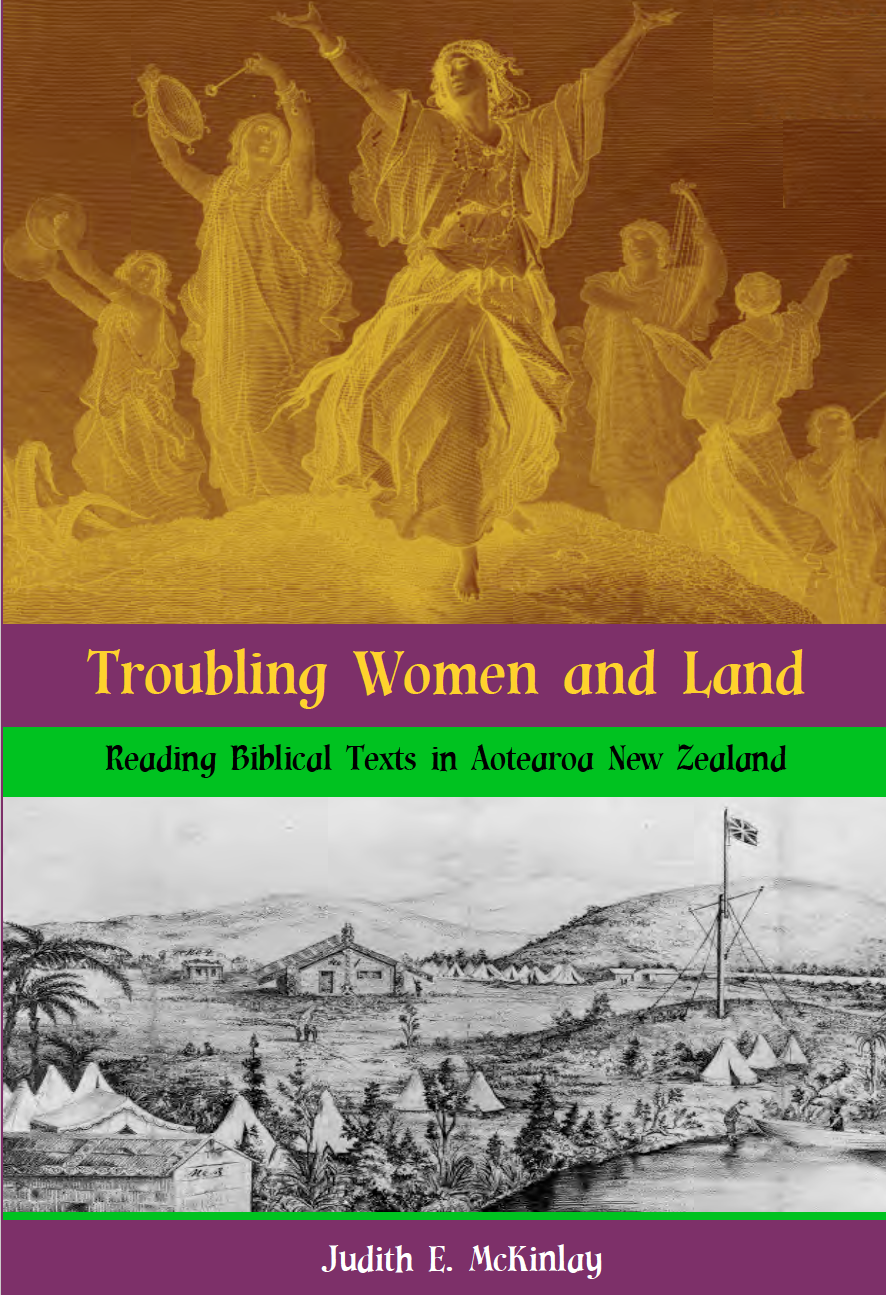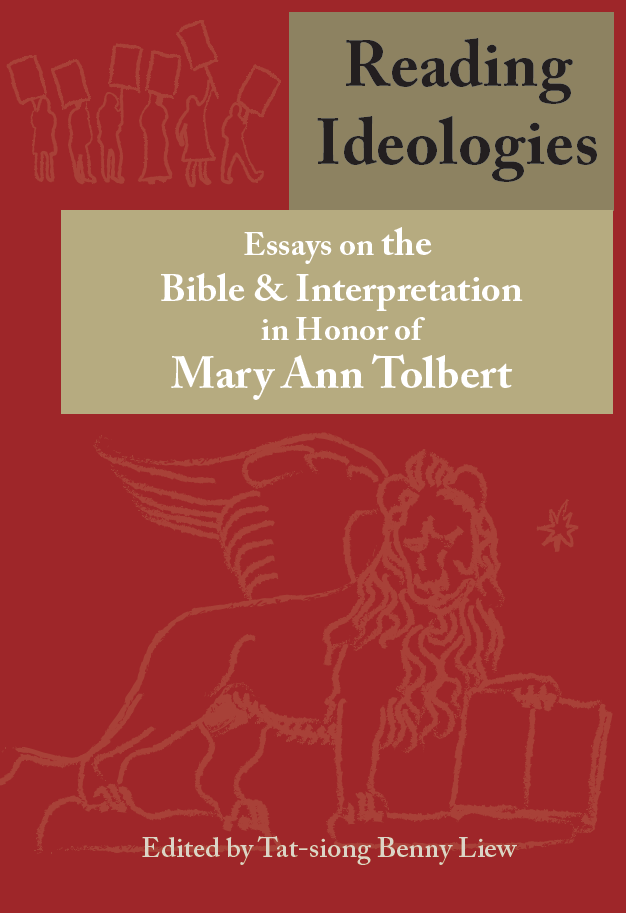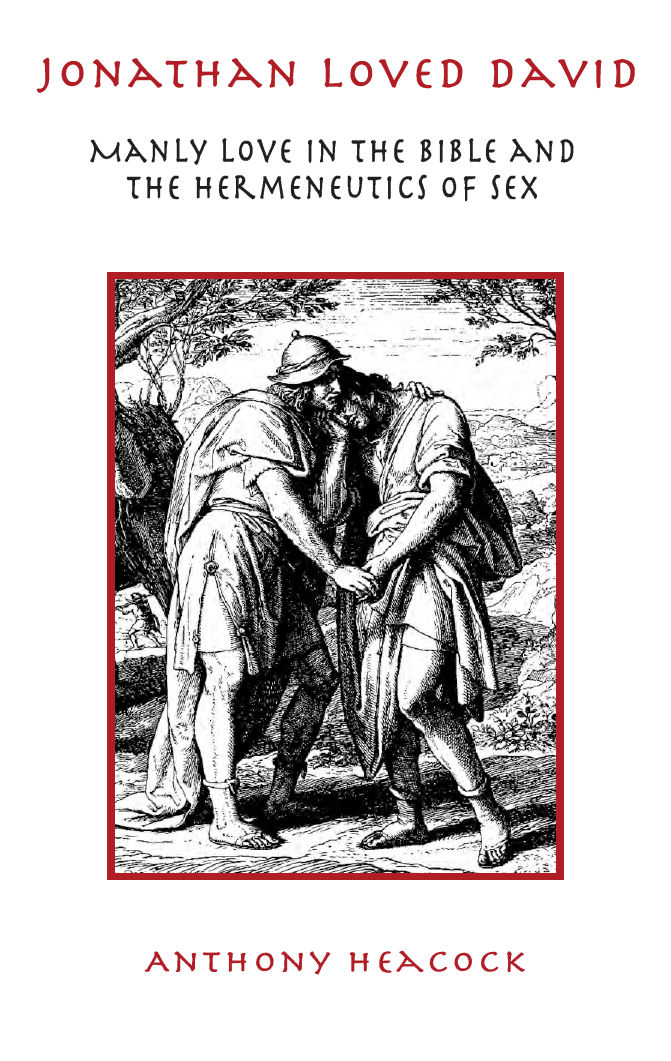Women and Gender in the Bible: Texts, Intersections, Intertexts
Published: Dec 2021
£60.00
This volume has its origins in a conference entitled 'Women and Gender in the Bible and the Ancient World' (University of Glasgow, 2019), a symposium with a deliberately broad scope to encourage fresh research that might transcend already-defined categories. With responses from both emerging and established academics, as well as professionals outside the academy, this collection offers a breadth of explorations of the gendered landscapes and horizons that construct, and subvert, biblical womanhood, and its reception. Familiar figures such as Mary Magdalene, Eve, and Tamar are treated alongside unnamed women whose anonymity is revealing.
Exploring a range of performances from ritual to resistance, and from storytelling to sex work, the contributors aim to capture connections between biblical figures and their socio-political worlds, their afterlives and reworkings, and their continued resonances for today's readers and scholars of the Bible. Questions are raised about gendered status, transformation, territorialization and oppression of biblical women: the significance and complexity of their relationships within and outwith the texts that both constitute their confinements and provoke new lineages.
Women and Gender in the Bible offers challenging perspectives on our understanding of how we can establish creative transactions between ancient patriarchal cultures and modern post-industrial cultures via counter-readings, misreadings and outraged readings. Casting off the intolerable weight of hundreds of years of androcentric reception is both a starting point and an ultimate goal.
Women and Gender in the Bible: Texts, Intersections, Intertexts
£60.00
This volume has its origins in a conference entitled 'Women and Gender in the Bible and the Ancient World' (University of Glasgow, 2019), a symposium with a deliberately broad scope to encourage fresh research that might transcend already-defined categories. With responses from both emerging and established academics, as well as professionals outside the academy, this collection offers a breadth of explorations of the gendered landscapes and horizons that construct, and subvert, biblical womanhood, and its reception. Familiar figures such as Mary Magdalene, Eve, and Tamar are treated alongside unnamed women whose anonymity is revealing.
Exploring a range of performances from ritual to resistance, and from storytelling to sex work, the contributors aim to capture connections between biblical figures and their socio-political worlds, their afterlives and reworkings, and their continued resonances for today's readers and scholars of the Bible. Questions are raised about gendered status, transformation, territorialization and oppression of biblical women: the significance and complexity of their relationships within and outwith the texts that both constitute their confinements and provoke new lineages.
Women and Gender in the Bible offers challenging perspectives on our understanding of how we can establish creative transactions between ancient patriarchal cultures and modern post-industrial cultures via counter-readings, misreadings and outraged readings. Casting off the intolerable weight of hundreds of years of androcentric reception is both a starting point and an ultimate goal.
Ancestral Queerness: The Normal and the Deviant in the Abraham and Sarah Narratives
Published: May 2019
£50.00
What would it look like to be queer in the time of Abraham and Sarah? What is normative and what is deviant in their stories? What does this have to do with queer lives today?
In Ancestral Queerness, Gil Rosenberg uses a careful comparative method to develop a cross-cultural queer category ('Queer'). He applies this category to Abraham and Sarah and argues that, Abraham and Sarah may usefully be regarded as 'Queer'.
Rosenberg's comparisons draw on a variety of contemporary queer stories, scholarship, and theories. These include a lesbian mother trying to support her partner and newborn daughter, Australian polyamorous families, Lee Edelman's figure of the Child, and gay men building families through surrogacy.
These comparisons lead Rosenberg to surprising new interpretations of several key passages in Genesis 11 —21. For example, he argues that Abraham wants to hide his marriage to Sarah because their relationship is a queer one, and that Sarah may not actually be wanting a biological child. Rosenberg also highlights the combination of normative and deviant elements in Abraham's strategies for obtaining an heir, and the role of ethnic and class difference in Abraham's and Sarah's efforts to become more normative.
Bold in its conclusions but careful and precise in its method, Ancestral Queerness breaks new ground by developing a queer theory applicable to diverse cultures, revealing the bias in previous scholarship on Abraham and Sarah, and opening up new paths of interpretation in their narratives.
Ancestral Queerness: The Normal and the Deviant in the Abraham and Sarah Narratives
£50.00
What would it look like to be queer in the time of Abraham and Sarah? What is normative and what is deviant in their stories? What does this have to do with queer lives today?
In Ancestral Queerness, Gil Rosenberg uses a careful comparative method to develop a cross-cultural queer category ('Queer'). He applies this category to Abraham and Sarah and argues that, Abraham and Sarah may usefully be regarded as 'Queer'.
Rosenberg's comparisons draw on a variety of contemporary queer stories, scholarship, and theories. These include a lesbian mother trying to support her partner and newborn daughter, Australian polyamorous families, Lee Edelman's figure of the Child, and gay men building families through surrogacy.
These comparisons lead Rosenberg to surprising new interpretations of several key passages in Genesis 11 —21. For example, he argues that Abraham wants to hide his marriage to Sarah because their relationship is a queer one, and that Sarah may not actually be wanting a biological child. Rosenberg also highlights the combination of normative and deviant elements in Abraham's strategies for obtaining an heir, and the role of ethnic and class difference in Abraham's and Sarah's efforts to become more normative.
Bold in its conclusions but careful and precise in its method, Ancestral Queerness breaks new ground by developing a queer theory applicable to diverse cultures, revealing the bias in previous scholarship on Abraham and Sarah, and opening up new paths of interpretation in their narratives.
Sexuality, Ideology and the Bible: Antipodean Engagements
Published: Sep 2015
£60.00
What happens when explorations of sexuality, gender and the Bible go down under? This fascinating collection of essays, written by scholars located in the Antipodes, traverses the highly contested landscapes of sexuality, gender and biblical studies, revealing a myriad of sexual discourses voiced within both the biblical texts and their interpretative traditions. Recognizing that textual meaning is always shaped by the cultural and contextual baggage the reader brings to the interpretative task, contributors raise provocative questions about the meanings, identities and ideologies that surround biblical discourses of sexuality and gender, exploring how these have been and can be reshaped and reconceived.
Deane Galbraith examines the theological reflections of Augustine and Paul on Adam's 'perfect penis' in Eden while Roland Boer explores the earthy biblical vocabulary used to depict female genitalia. Christina Petterson, meanwhile, examines the Moravian Brethren's celebration of a Christ who bore on his body male and female genitalia. Travelling beyond the sexualized human body, Emily Colgan considers the problematic language of gender violence against the land that is voiced in Jeremiah. Elaine Wainwright blurs and queers the binary categories of human and non-human in the Sermon on the Mount. Yael Klangwisan continues this blurring of boundaries through her creative reading of Song of Songs.
Moving from the gendered body to the gendered voice, Alan Cadwallader probes Paul's rhetorical gender-bending in his 'masculinized' oral culture. Caroline Blyth and Teguh Wijaya Mulya empower Delilah to vocalize her queer potential in both the biblical narrative and popular culture. Gillian Townsley adds her own Kiwi voice to explore queer possibilities in Philippians 4.2-3 in the light of New Zealand's same-sex marriage legislation. The volume concludes with a queer reconsideration of the Antipodes themselves from the perspective of a northern-hemisphere biblical scholar, Hugh Pyper.
This compelling collection will make a substantive contribution to the bookshelves of scholars and interested readers in such areas as biblical studies, religion and gender-queer studies.
Sexuality, Ideology and the Bible: Antipodean Engagements
£60.00
What happens when explorations of sexuality, gender and the Bible go down under? This fascinating collection of essays, written by scholars located in the Antipodes, traverses the highly contested landscapes of sexuality, gender and biblical studies, revealing a myriad of sexual discourses voiced within both the biblical texts and their interpretative traditions. Recognizing that textual meaning is always shaped by the cultural and contextual baggage the reader brings to the interpretative task, contributors raise provocative questions about the meanings, identities and ideologies that surround biblical discourses of sexuality and gender, exploring how these have been and can be reshaped and reconceived.
Deane Galbraith examines the theological reflections of Augustine and Paul on Adam's 'perfect penis' in Eden while Roland Boer explores the earthy biblical vocabulary used to depict female genitalia. Christina Petterson, meanwhile, examines the Moravian Brethren's celebration of a Christ who bore on his body male and female genitalia. Travelling beyond the sexualized human body, Emily Colgan considers the problematic language of gender violence against the land that is voiced in Jeremiah. Elaine Wainwright blurs and queers the binary categories of human and non-human in the Sermon on the Mount. Yael Klangwisan continues this blurring of boundaries through her creative reading of Song of Songs.
Moving from the gendered body to the gendered voice, Alan Cadwallader probes Paul's rhetorical gender-bending in his 'masculinized' oral culture. Caroline Blyth and Teguh Wijaya Mulya empower Delilah to vocalize her queer potential in both the biblical narrative and popular culture. Gillian Townsley adds her own Kiwi voice to explore queer possibilities in Philippians 4.2-3 in the light of New Zealand's same-sex marriage legislation. The volume concludes with a queer reconsideration of the Antipodes themselves from the perspective of a northern-hemisphere biblical scholar, Hugh Pyper.
This compelling collection will make a substantive contribution to the bookshelves of scholars and interested readers in such areas as biblical studies, religion and gender-queer studies.
Troubling Women and Land: Reading Biblical Texts in Aotearoa New Zealand
Published: Apr 2014
£60.00
What do women have to do with land? Biblical women such as Rahab, Achsah, and the daughters of Zelophehad have a great deal to do with Israel's land concerns, and their roles are indeed found troubling. And there are also questions to be asked of Miriam's role in the move from Egypt towards the 'promised' land; of Deborah, involved in a battle with a Canaanite commander; and of Huldah, whose troubling role in Josiah's reform is exposed in a queer-critical reading.
Reading such land-focused narratives from the context of Aotearoa New Zealand brings to the surface disturbing connections with that country's own quite particular experience of colonialism. Such findings call for feminist postcolonial scrutiny. Here, in response, the critical scope is widened by reading these texts contrapuntally with others concerning New Zealand's colonial and postcolonial experiences, both past and present.
Troubling Women and Land has a personal edge, with the author's voice frequently intruding, without apology, sometimes even holding imaginary conversations with characters and scholars, complementing the use of more traditional critical approaches. What underlies the book is a conviction that reading biblical texts matters in the politics of today's world.
Troubling Women and Land: Reading Biblical Texts in Aotearoa New Zealand
£60.00
What do women have to do with land? Biblical women such as Rahab, Achsah, and the daughters of Zelophehad have a great deal to do with Israel's land concerns, and their roles are indeed found troubling. And there are also questions to be asked of Miriam's role in the move from Egypt towards the 'promised' land; of Deborah, involved in a battle with a Canaanite commander; and of Huldah, whose troubling role in Josiah's reform is exposed in a queer-critical reading.
Reading such land-focused narratives from the context of Aotearoa New Zealand brings to the surface disturbing connections with that country's own quite particular experience of colonialism. Such findings call for feminist postcolonial scrutiny. Here, in response, the critical scope is widened by reading these texts contrapuntally with others concerning New Zealand's colonial and postcolonial experiences, both past and present.
Troubling Women and Land has a personal edge, with the author's voice frequently intruding, without apology, sometimes even holding imaginary conversations with characters and scholars, complementing the use of more traditional critical approaches. What underlies the book is a conviction that reading biblical texts matters in the politics of today's world.
Abject Bodies in the Gospel of Mark
Published: July 2012
Price range: £22.50 through £50.00
Basing himself on Judith Butler’s notion of gender, abjectness, vulnerability, and the precariousness of the human body, Manuel Villalobos offers a compelling study of a number of characters in Mark’s passion narrative whom he finds to be transgressing boundaries and disrupting their assigned gender roles. He then applies the same methodology to Jesus, queering the Markan passion narrative, and concludes that because it was subject to all kinds of physical abuses Jesus’ body is the way by which God becomes identified and fully implicated in the life of those who live at the margins of society.
The whole book, exegetically rich and imaginative, is grounded on a hermeneutic which Villalobos terms Del otro lado / from the other side, because it celebrates the kind of ambiguity produced by gender, racial, cultural, and ethnic otherness, interweaving (often harrowing) tales of village life in Mexico with interpretations of specific Markan episodes. In so doing he hopes to initiate a dialogue between the Northern and the Southern hemispheres, a dialogue that crosses the boundaries that separate and exclude people because of economic and legal statuses and, specially, sexual orientation. The end product is a fresh and totally destabilizing reading that accomplishes the difficult task of bringing to the fore those voices neglected by the history of the interpretation of the text.
Abject Bodies in the Gospel of Mark
Price range: £22.50 through £50.00
Basing himself on Judith Butler’s notion of gender, abjectness, vulnerability, and the precariousness of the human body, Manuel Villalobos offers a compelling study of a number of characters in Mark’s passion narrative whom he finds to be transgressing boundaries and disrupting their assigned gender roles. He then applies the same methodology to Jesus, queering the Markan passion narrative, and concludes that because it was subject to all kinds of physical abuses Jesus’ body is the way by which God becomes identified and fully implicated in the life of those who live at the margins of society.
The whole book, exegetically rich and imaginative, is grounded on a hermeneutic which Villalobos terms Del otro lado / from the other side, because it celebrates the kind of ambiguity produced by gender, racial, cultural, and ethnic otherness, interweaving (often harrowing) tales of village life in Mexico with interpretations of specific Markan episodes. In so doing he hopes to initiate a dialogue between the Northern and the Southern hemispheres, a dialogue that crosses the boundaries that separate and exclude people because of economic and legal statuses and, specially, sexual orientation. The end product is a fresh and totally destabilizing reading that accomplishes the difficult task of bringing to the fore those voices neglected by the history of the interpretation of the text.
Reading Ideologies: Essays on the Bible and Interpretation in Honor of Mary Ann Tolbert
Published: Sep 2011
£75.00
Mary Ann Tolbert has been a pioneering voice in what we have now come to call 'interdisciplinary reading' of the Bible. In the early stages of her career, Tolbert used New Testament parables to push biblical scholarship beyond the traditional confines of historical-critical methods. Over the past four decades, she has made significant contributions to psychoanalytical, narrative, rhetorical, feminist, and queer readings of the Bible, and has interrogated the social location of biblical interpreters as well as the ideological implications of reading and reading methodologies.
Divided into three main sections, this collection of essays from biblical scholars around the world to honor Tolbert engage the very issues that have driven and defined Tolbert's scholarship: reading between the historical and the literary; reading between biblical authority and social location; and reading between gender and sexuality. The title of the collection focuses on an often-used but arguably under-examined term in biblical studies: 'ideology'. Together, essays in this volume not only perform ideological criticism of the Bible but also profess the ideological nature of criticism itself, since —regardless of 'what' and 'how' one is reading —the act of reading is always already infused with ideology. By highlighting the work of ideology in interpretation, this volume ultimately suggests that while ideology impacts interpretation of meaning, the meaning of ideology itself also needs to be interpreted.
Reading Ideologies: Essays on the Bible and Interpretation in Honor of Mary Ann Tolbert
£75.00
Mary Ann Tolbert has been a pioneering voice in what we have now come to call 'interdisciplinary reading' of the Bible. In the early stages of her career, Tolbert used New Testament parables to push biblical scholarship beyond the traditional confines of historical-critical methods. Over the past four decades, she has made significant contributions to psychoanalytical, narrative, rhetorical, feminist, and queer readings of the Bible, and has interrogated the social location of biblical interpreters as well as the ideological implications of reading and reading methodologies.
Divided into three main sections, this collection of essays from biblical scholars around the world to honor Tolbert engage the very issues that have driven and defined Tolbert's scholarship: reading between the historical and the literary; reading between biblical authority and social location; and reading between gender and sexuality. The title of the collection focuses on an often-used but arguably under-examined term in biblical studies: 'ideology'. Together, essays in this volume not only perform ideological criticism of the Bible but also profess the ideological nature of criticism itself, since —regardless of 'what' and 'how' one is reading —the act of reading is always already infused with ideology. By highlighting the work of ideology in interpretation, this volume ultimately suggests that while ideology impacts interpretation of meaning, the meaning of ideology itself also needs to be interpreted.
Jonathan Loved David: Manly Love in the Bible and the Hermeneutics of Sex
Published: Mar 2011
£60.00
The relationship between the Hebrew heroes David and Jonathan has caught the attention of popular and scholarly writers alike. Yet there is little agreement about the nature of this relationship that speaks of a love between two men that 'surpasses the love of a man for a woman' (2 Sam. 1.26). Weighing the arguments of scholars including Nissinen, Stone and Zehnder, Heacock produces a meta-critical analysis of the many interpretations of the relationship between David and Jonathan, identifying three dominant readings: the traditional political-theological interpretation, the homoerotic interpretation, and the homosocial interpretation.
After outlining the three interpretive approaches, Heacock considers the evidence cited to support each: namely, themes in the David and Jonathan narrative and related biblical texts, ancient political treaties, laws pertaining to homogenital behaviour in the ancient Mediterranean world, and the heroic tales of the Gilgamesh Epic and Homer's Iliad. By applying recent epistemological shifts in knowledge as developed in the interdisciplinary fields of sexuality studies, queer studies and ancient studies, Heacock emphasizes the inescapability of the modern reader's cultural context when reading the narrative, particularly the influence of modern discourses of sexuality.
Rather than suggest an alternative historical reading, Heacock turns the debate on its head by abandoning claims to historical veracity and embracing the input of the contemporary queer reader. Using queer theory and reader-response criticism, he offers a reading of the relationship between David and Jonathan through the lens of contemporary gay male friendships. This queer reading not only celebrates manly love in its numerous forms, but also adds a self-critical voice to the discussion that exposes the heteronormative assumptions underlying the questions often asked of the narrative.
Jonathan Loved David: Manly Love in the Bible and the Hermeneutics of Sex
£60.00
The relationship between the Hebrew heroes David and Jonathan has caught the attention of popular and scholarly writers alike. Yet there is little agreement about the nature of this relationship that speaks of a love between two men that 'surpasses the love of a man for a woman' (2 Sam. 1.26). Weighing the arguments of scholars including Nissinen, Stone and Zehnder, Heacock produces a meta-critical analysis of the many interpretations of the relationship between David and Jonathan, identifying three dominant readings: the traditional political-theological interpretation, the homoerotic interpretation, and the homosocial interpretation.
After outlining the three interpretive approaches, Heacock considers the evidence cited to support each: namely, themes in the David and Jonathan narrative and related biblical texts, ancient political treaties, laws pertaining to homogenital behaviour in the ancient Mediterranean world, and the heroic tales of the Gilgamesh Epic and Homer's Iliad. By applying recent epistemological shifts in knowledge as developed in the interdisciplinary fields of sexuality studies, queer studies and ancient studies, Heacock emphasizes the inescapability of the modern reader's cultural context when reading the narrative, particularly the influence of modern discourses of sexuality.
Rather than suggest an alternative historical reading, Heacock turns the debate on its head by abandoning claims to historical veracity and embracing the input of the contemporary queer reader. Using queer theory and reader-response criticism, he offers a reading of the relationship between David and Jonathan through the lens of contemporary gay male friendships. This queer reading not only celebrates manly love in its numerous forms, but also adds a self-critical voice to the discussion that exposes the heteronormative assumptions underlying the questions often asked of the narrative.

